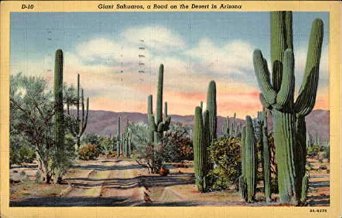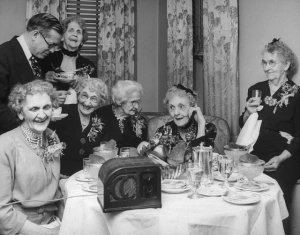
The world doesn’t make sense, so why should I paint pictures that do? – Pablo Picasso
A large hardbound book on Pablo Picasso was in my father’s house. I poured over the photos in that book, over Picasso’s paintings, photos of him in his studio. It seemed to me he painted just enough, just the essence of things. More than the paintings, I admired the photos of the artist in his studio, the walls white with cleanliness and expectancy, the stored canvases, ideas stacked like cordwood, and paint splattered easels, his casual presence, stout and thick-legged in shorts and a striped shirt.
So I asked my dad to paint the walls of my room high gloss white and cover the concrete floor in white tiles. A large south facing window lit the room, reflecting off the clean walls, floor and ceiling. I had a print of Michelangelo’s Delphic Sybil on the wall by the door.
My walls were the clean, bare freshness of unpainted fresco. I bought an antique bed at a junk yard, spray painted it black, and covered it with white sheets and white blankets. My father hated the bed. Antiques made him think of poverty and the Great Depression, as did rice and as did chicken. Poor people had old furniture and ate rice. Every Sunday night of my life with my dad we ate a grilled steak, a baked potato and an iceberg lettuce salad while we watched 60 minutes. It was sacred, containing all the rules, comfort and predictability of ritual.
My father worked six days a week in his saddle shop, 9 a.m. to 5:30 p.m. He closed at 4:00 on Saturdays. It was a thirty-minute drive between his house and the shop. After work he did the grocery shopping, put everything away and cooked our meal. Sometimes he tossed out the smallest suggestion that I help him in some way, “Mis, put away the groceries so you know what we have.”
After dinner, he washed our 2 dishes and the pan in which he made the meal, our two glasses, and stacked everything in the dish drainer. He did not believe in dishwashers. In the morning before I woke, he emptied the dishes from the dish rack into the cupboards and drawers, made coffee and toast and then ironed his shirt and pants for the day. On rare occasion when he was running late, he would ask me to iron his shirt. I bristled at the imposition, sulking as I ironed in the order he taught me: the collar first, then press the sleeves, then the body of the shirt. Resentfully.
Robert Hayden’s poem makes my heart break for my dad:
Those Winter Sundays
Sundays too my father got up early
and put his clothes on in the blueblack cold,
then with cracked hands that ached
from labor in the weekday weather made
banked fires blaze. No one ever thanked him.
I’d wake and hear the cold splintering, breaking.
When the rooms were warm, he’d call,
and slowly I would rise and dress,
fearing the chronic angers of that house,
Speaking indifferently to him,
who had driven out the cold
and polished my good shoes as well.
What did I know, what did I know
of love’s austere and lonely offices?
Cave Creek had no blueblack cold, and chronic angers were the stuff of life with my mother. But my father labored alone and unceasingly, without thanks. I was not given to selflessness and did not recognize it, except to know my father loved me, and that there was an effortlessness to our relationship. My father asked almost nothing of me. Perhaps his undemanding parenting was a reaction to his own difficult childhood —abandonment by his mother, an orphanage for the first four years of his life, farm labor with a cold step-mother, a severe, unemotional father. Or perhaps my own difficult childhood formed his parenting and his guilt about the things that went wrong, that prevented him from asking anything of me?
On Sunday mornings, my father drove the thirty minutes to town for pastries or donuts and the Sunday newspaper. He spread the newspaper out on the kitchen table, and sat long and idle with his coffee and Danish. Behind him a picture window opened onto the perennially sunny desert. We ate breakfast and lunch at the kitchen island, and almost all our dinners in front of the television. The kitchen table was for the Sunday paper and for Thanksgiving. He greeted me, “Well, good morning, Sunshine,” as I crept out of my room at 10 or 11 a.m. or later. The Sunday paper robbed me of any of his attention. I hated the newspaper. “There’s breakfast on the counter,” he would say, then nod back into reading. And then he would begin his labor.
Soon after he bought the Cave Creek house, my father had a pool dug. Then a crew came to trench a foundation and set the rebar for a cinderblock wall. Then my father, his aristocratic mannerisms and thin build, his 6 day work week, English saddle shop owner,my father with, if not surgeons hands, the hands his surgeon son would inherit, built a 6 foot cinderblock wall around the pool to keep out coyotes and javelina and snakes. He strung taught guide strings and mixed concrete.
My father had never laid a single brick, but one by one he laid hundreds of these blocks, measured and checked and rechecked each one with a level, weeks upon weeks of work since he only had Sundays. He built the south wall only three blocks high, gating in the upper part with wrought iron, so we still had a view of the desert. Then he painted the wall the same white as the house and topped it with terra cotta pavers. He had me take a picture. I climbed tentatively up on a full pallet of block. My dad stood on the other side of the wall, the last leg of it, squinting into the sun, in leather work gloves, a trowel in his right hand, his left hand leaning on he wall. House proud.

I counted twenty-seven palo verde trees on the property, with green, living bark, rooted where they came forth, some maybe two or three hundred years prior. Each spring, native grasses and weeds came up and in May when the heat took hold, they turned dry and brittle as kindling. I can still see my father in a tan pith helmet, a white undershirt, his thin, pale legs in baggy, khaki shorts, bent over a hula hoe, scraping away a circle of weeds as wide as each tree’s canopy, tree by tree, for weeks. When he found rattlesnakes, he took the blade of the hoe to their broad heads, severing them.
When a circle was cleared from beneath each one of the trees, and the weeds had been raked and disposed of in the junk pile at the back of the property, he pulled his car around behind the shed. There he hooked an 8-foot section of chain link fence around the bumper of his car, and weighted it with a wooden pallet. Then he drove, dragging the chain link through the yard, whipping it around the trees, zigzagging back and forth across the yard, an hour of whooshing through the sandy gravel. In this way my father meticulously relieved the land of the weeds, lassoed chaos.
There was a topography to my father’s land, with small hills and rises and a wash running through the west side. He managed to tame the wildness into something from the cover of Arizona Highways. His house appeared as if nestled in an artist’s rendering of the Sonoran desert, a perfect snapshot in perfect light, smooth hillocks punctuated by the intrepid green-barked trees, a few lonely saguaros, a long white house with a low, brown roof at rest in the midst of it. My father brought order and beauty to whatever he touched.
-excerpted from my memoir of childhood abuse, depression and spiritual awakening.

